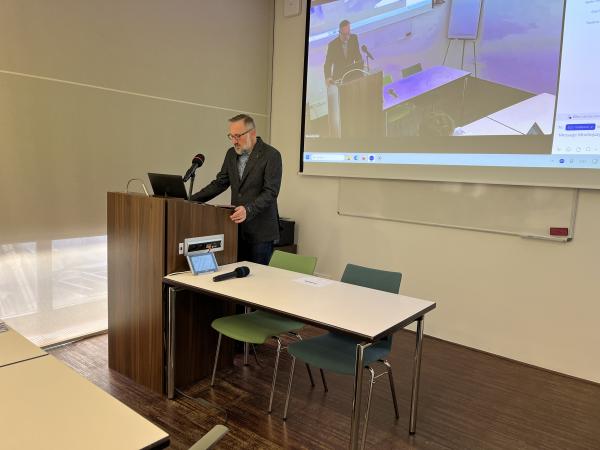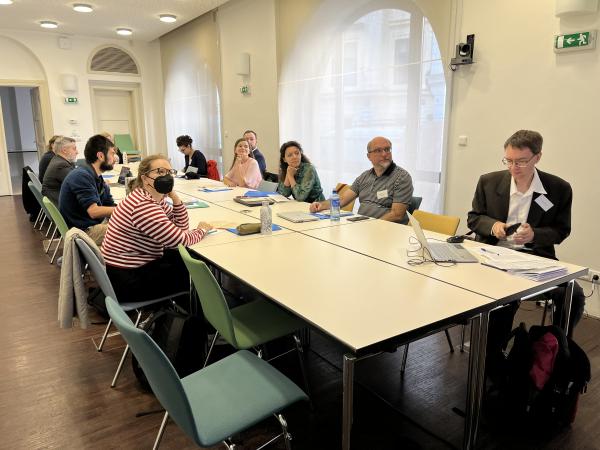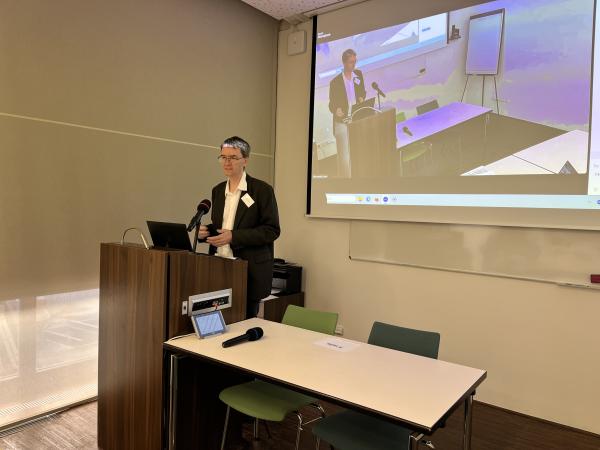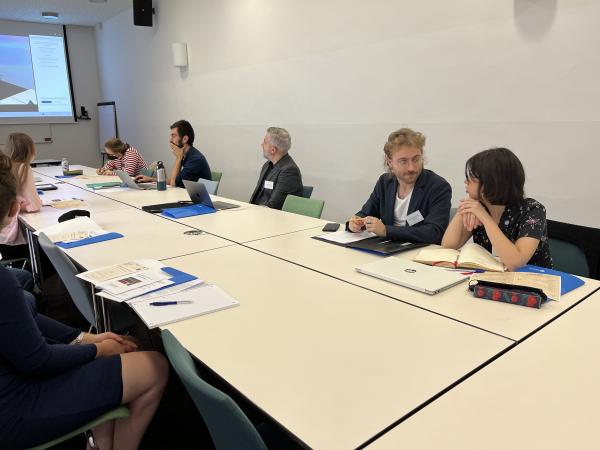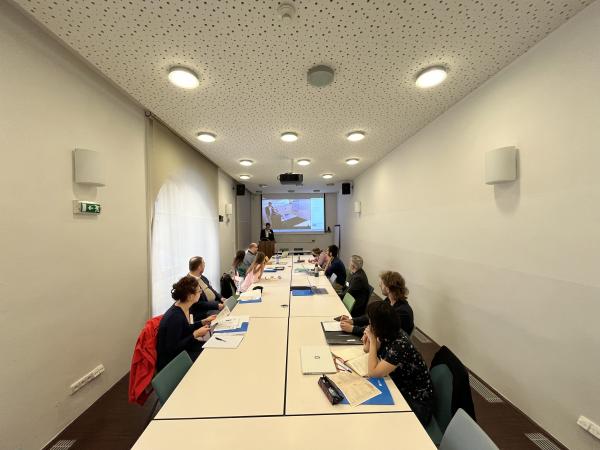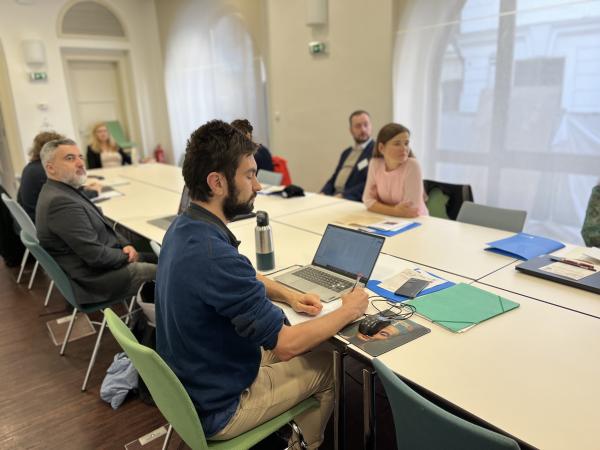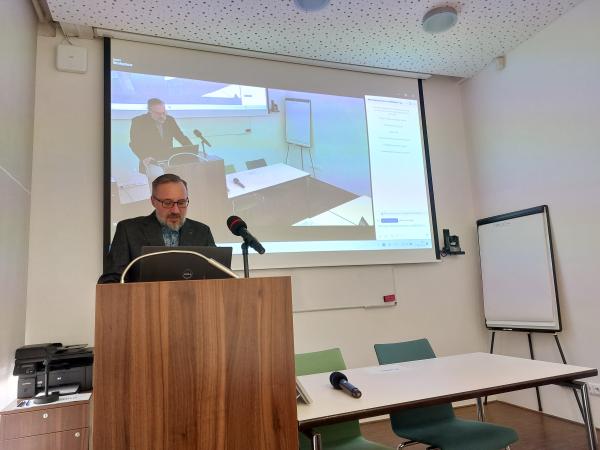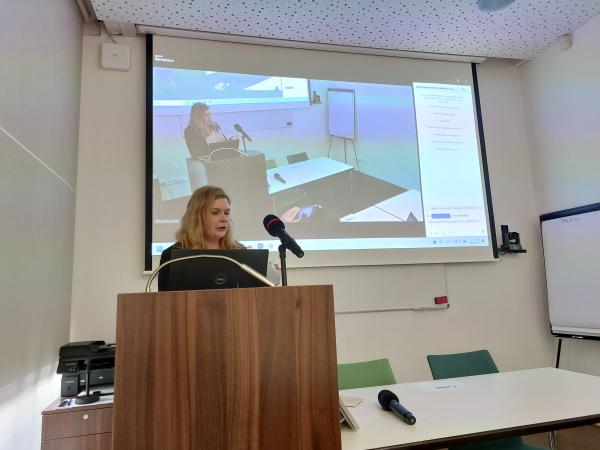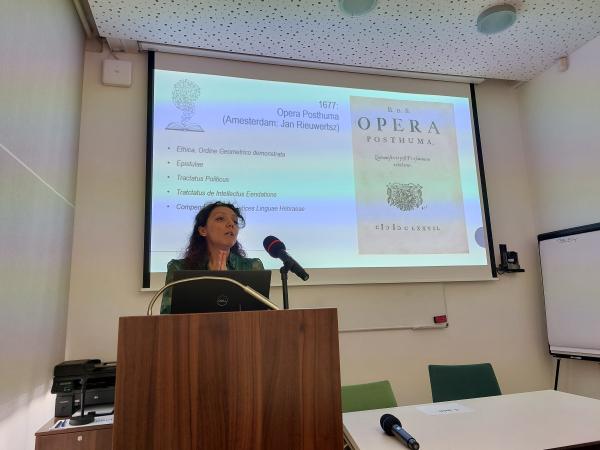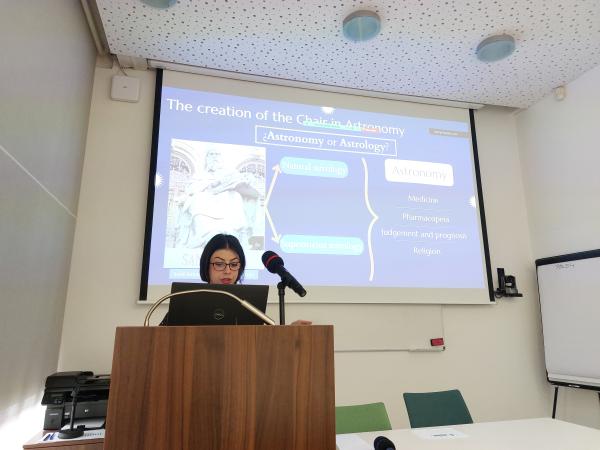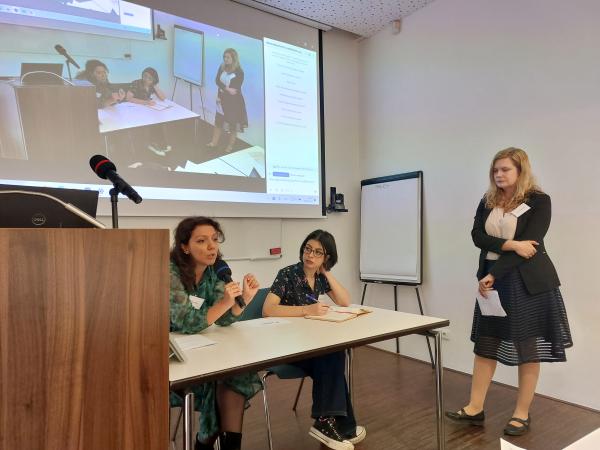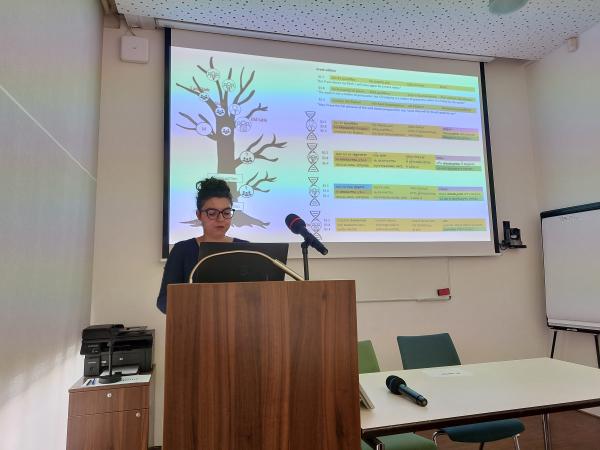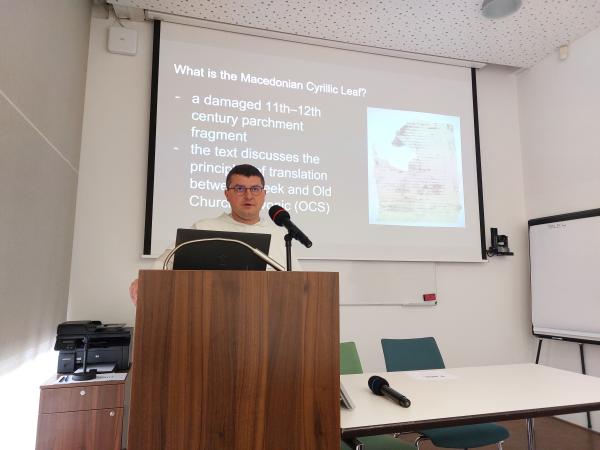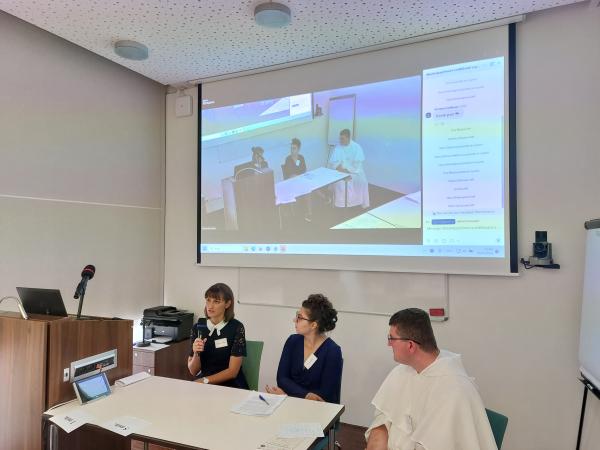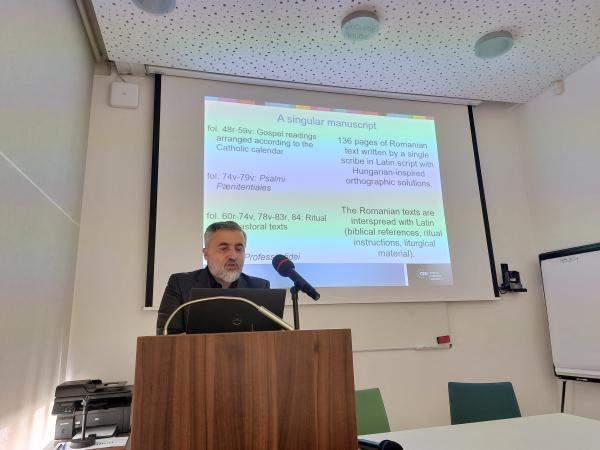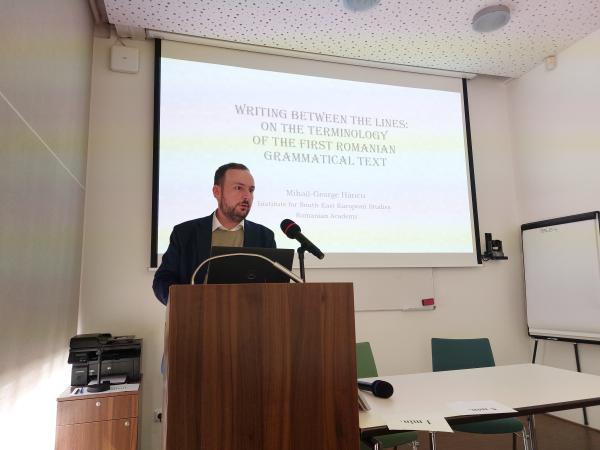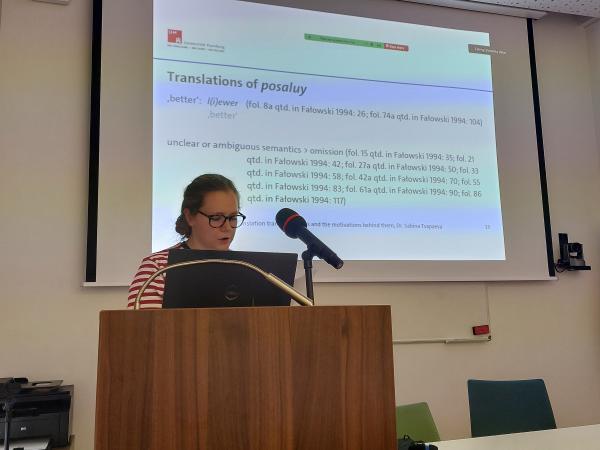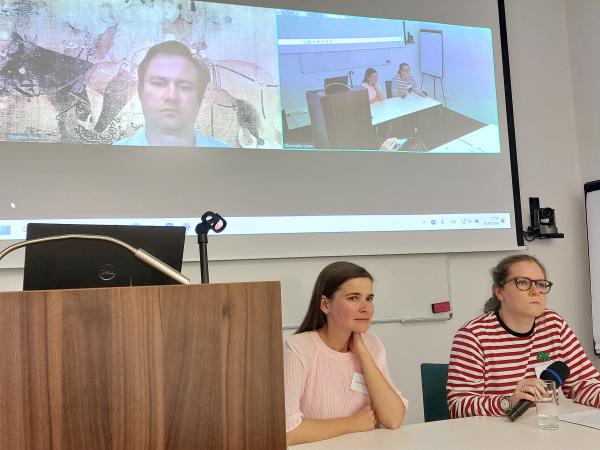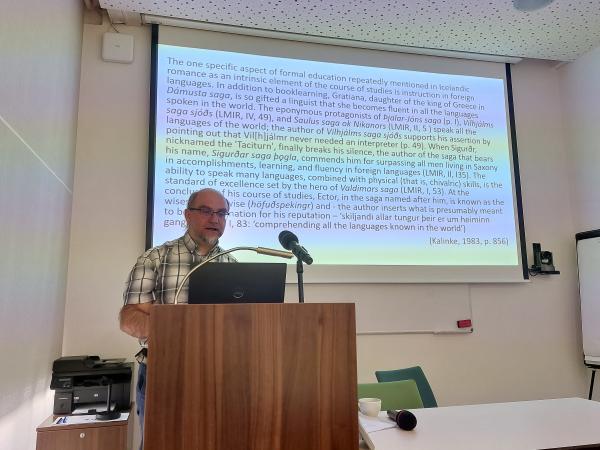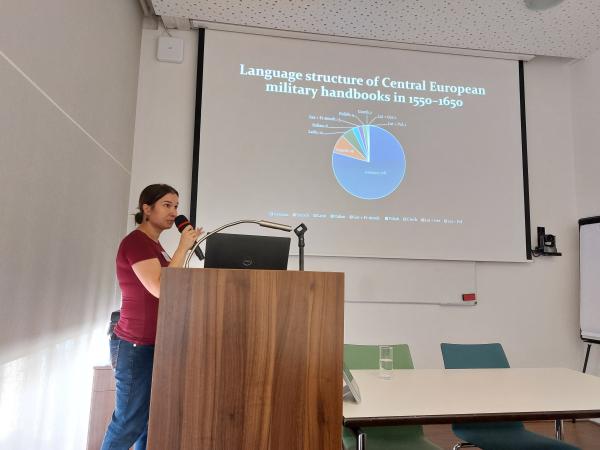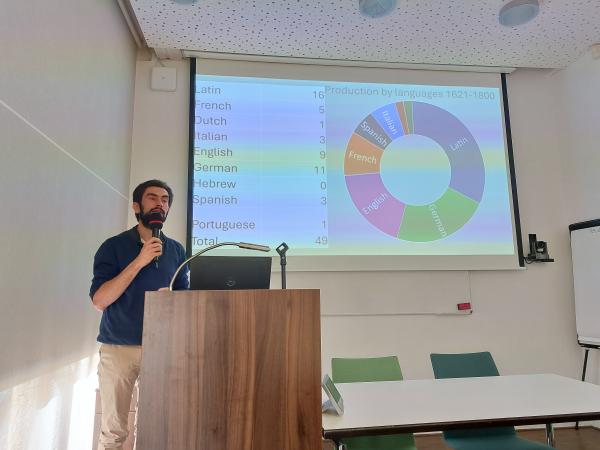Mnohojazyčnost a vzdělávání v předmoderní době /Multilingualism and Education in Pre-modern Europe
Ve dnech 19. a 20. září 2024 proběhlo v Praze mezinárodní kolokvium nazvané Mnohojazyčnost a vzdělávání v předmoderní Evropě. Příspěvky byly proneseny anglicky nebo česky. Kompletní záznam všech přednášek konference je zde.
Akce se konala hybridně v Akademickém konferenčním centru (http://www.akc-avcr.cz/kontakty.html).
Kontakt: @email
On September 19 and 20, 2024, an international colloquium entitled Multilingualism and Education in Pre-modern Europe took place in Prague. Papers were delivered in English and Czech. All conference presentations are available on YouTube.
The event took place (personally and online) in the Academic Conference Center (http://www.akc-avcr.cz/kontakty.html; https://mapy.cz/s/melamaneca)
Contact: @email
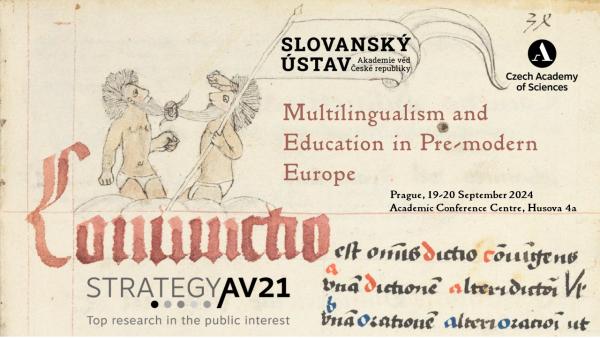
Mnohojazyčnost a vzdělávání (zahájení)
Programme
| Time | 19 September 2024 (Thursday) | 20 September 2024 (Friday) |
| Zoom | ||
| 9:10 | Opening | Ugnius Mikučionis-Vizgirda (Western Norway University of Applied Sciences): Plurilingualism and Language Learning and Acquisition in the Old Norse World |
| 9:30 | Ioana Bujor (University of Bucharest): “For those who want to speak Hebrew and not just chant it”: Spinoza’s Compendium of the Hebrew Language | Ryder C. Patzuk-Russell (University of Silesia in Katowice): Bilingual Learning in Medieval Iceland: Latinity and Vernacularity in the Old Norse World |
| 9:50 | Inés Pérez Teresa (Complutense University of Madrid): Learning an astronomical vocabulary in the Late Middle Ages: a Castilian example at the University of Salamanca | Gita Bērziņa and Brigita Cīrule (University of Latvia): Classical Languages for Comprehensive Intellectual Education in the 16th – 18th Century Riga |
| 10:10 | Discussion | |
| 10:40 | Coffee break | |
| 11:10 | Kliment (Tomáš) Mikulka (Ordo Praedicatorum, Prague): Contextual Reading of the Patristic sources in the Macedonian Cyrillic Leaf | Jitka Bieleń (Jagiellonian University, Cracow): Sekundární reflexe jazykového vzdělávání v knize „Polský dvořan“ Łukasze Górnického [Secondary reflection on language education in Łukasz Górnicki’s book „The Polish Courtier”] |
| 11:30 | Evelyne Diels (Ghent University): Saint Ignatius’ Letter to the Romans in a Cultural-Linguistic Greek-Slavonic Comparison |
|
| 11:50 | Mária A. Strýčková (Slovak Academy of Sciences): Tolkovanije (Explicatio) as a part of education | Áron Kovács (Reformed College of Sárospatak): A possible Sárospatak edition of Comenius“ Lucidarium. Examination of a newly discovered fragment of the Lucidarium |
| 12:10 | Discussion | |
| 12:40 | Lunch | |
| 14:00 | Cristian Gașpar (Central European University, Vienna): Teach Yourself Old Romanian (for Missionaries)? Transliteration, Phonetic Transcription, and Interdialectal Translation in the Evangeliarium Illyiense (ca. 1750) | Klára Andresová (Czech Academy of Sciences, Prague): Multilingualism in 16th and 17th century military education in the German language area |
| 14:20 | Vladislav Knoll (Czech Academy of Sciences, Prague): A 17th-century Church Slavonic grammar textbook for Romanians: a „metaphrasis” of Smotryc’kyj’s Slavonic Grammar | Clément Poupard (University of Bucharest): The art of memory as a propaedeutic to learning languages (17th-18th centuries) |
| 14:40 | Mihail-George Hâncu (Romanian Academy, Bucharest): Writing between the lines: on the terminology of the first Romanian grammatical text | José Julián Martín Mediero (Complutense University of Madrid): Myths, Monsters, and Catastrophes: Medieval Imagery as an Educational Tool for Social Control |
| 15:00 | Discussion | |
| 15:30 | Coffee break | Closure |
| 16:00 | Sabina Tsapaeva (University of Hamburg): Translation transformations and the motivations behind them. An exemplary analysis of the anonymous conversation book “Ein Rusch Boeck“ (16th century) | |
| 16:20 | Katarína Džunková (Charles University, Prague): Specifics of missionary language manuals for the indigenous peoples of the Russian Empire | |
| 16:40 | Stephen Pow (University of Calgary): “Thesaurus spiritualis est, quod sancti homines religiosi et seculares… addiscerent diversa linguagia”: Latin Europe’s Methods and Strategies for Communicating with the Peoples of the Mongol Empire | |
| 17:00 | Discussion | |
| 17:30 | End of the first day | |
